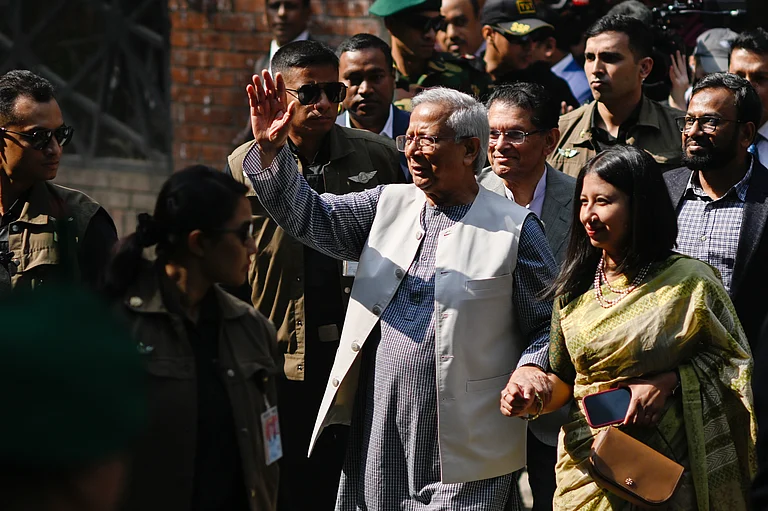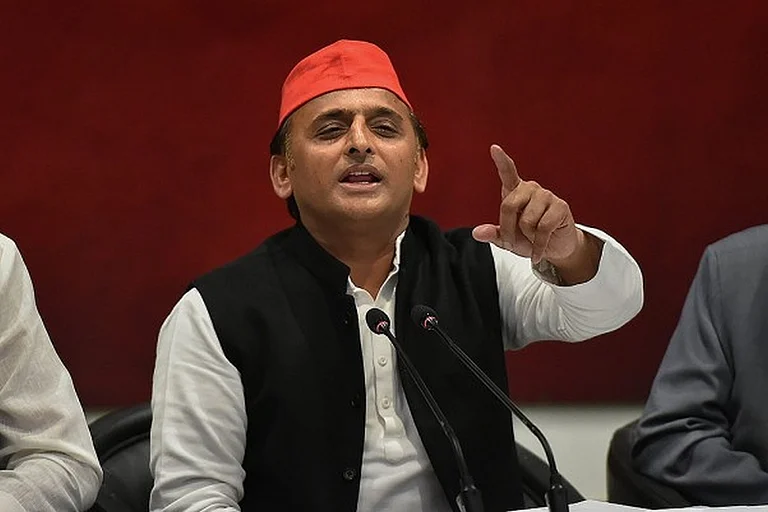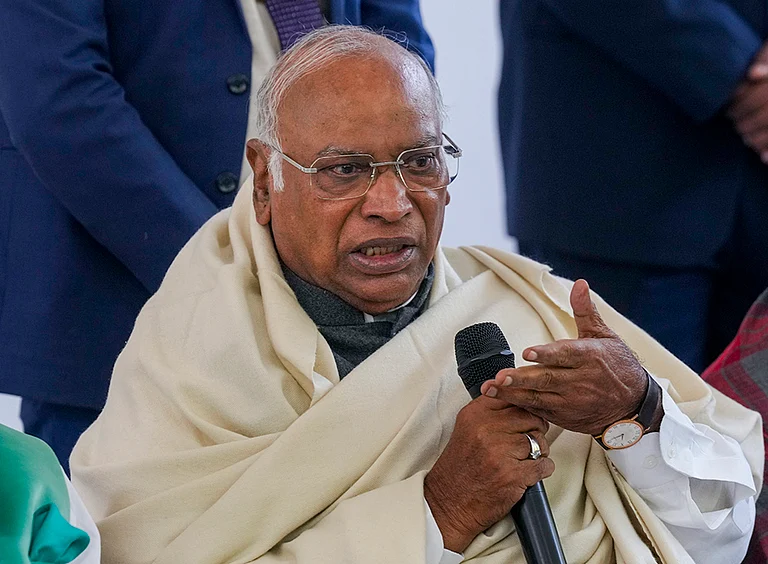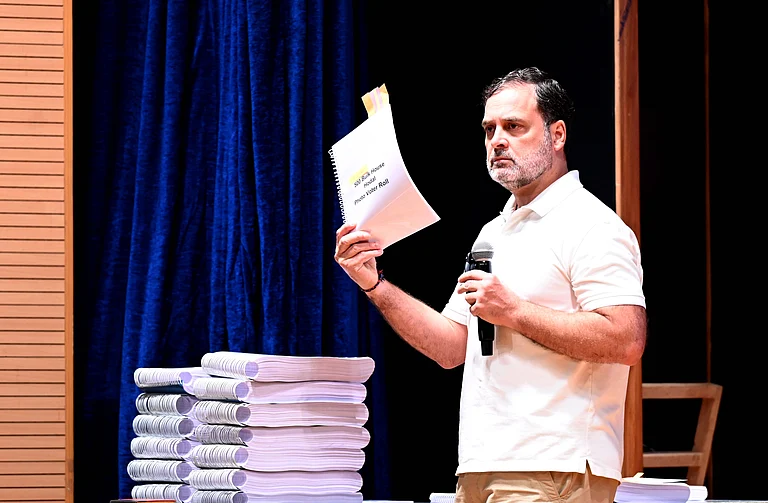It is a challenging time for democracy in our country. We are observing the 75th anniversary of our Republic, but we have failed to seriously take stock of our journey as a democracy. It is noteworthy that India is one of the very few countries which kept its polity democratic amidst serious challenges. Many nations in Africa, Asia and Latin America fell prey to military juntas, authoritarians, communist despots and religious obscurantists. Most post-colonial societies could not nurture democracy. Compared to them, our country’s record is exemplary.
However, in the recent past, our political discourse has increasingly turned undemocratic; our commitment to core democratic values such as diversity and tolerance is weakening; centre-state relations are frayed, causing deep fissures in our federal structure; legislatures have turned dysfunctional; our national statistical architecture stands compromised, impeding efforts to make the government accountable; media freedom is severely constricted; expression of dissent is smothered; and state institutions which ought to act as guardrails are being manipulated and undermined. The independence of our judiciary is questionable now. Evidence that the state enforcement and investigative agencies are deployed to serve the ruling dispensation’s partisan interests is mounting. All these trends are reflected in the rankings published year after year by several reputed global watchdog organisations.
At this crucial time, civil society must engage in a serious debate about the state of our democracy and find ways to deepen the democratic spirit in our polity. We should evaluate our democratic practices to see how they delivered, and what their failures are. We must discuss ways to prevent such failures from recurring. It is also necessary to celebrate our successes, identify the reasons for them and think of measures to strengthen the factors that contributed to them.
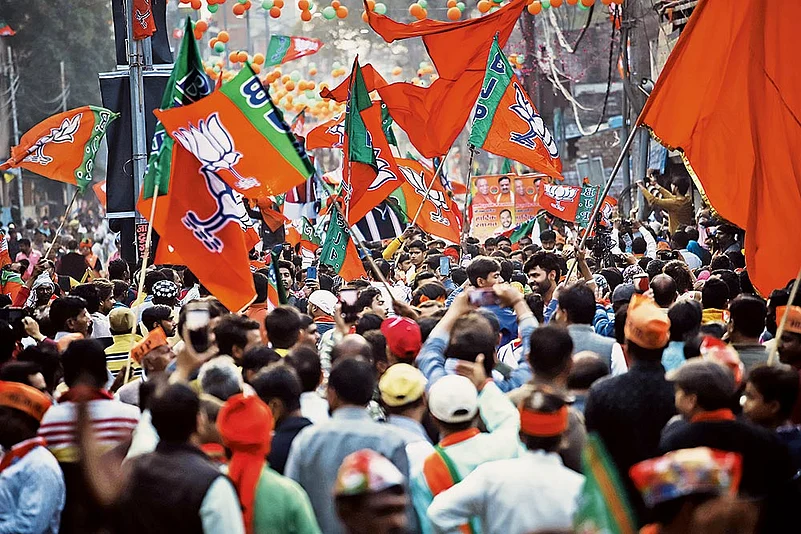
It is advisable to avoid comparisons with other societies, especially the western ones, and their practices. Every society has its own set of challenges. Each must work out its own solutions and opportunities. Therefore, we in India need to identify our challenges and explore our own solutions.
Undemocratic Political Parties
The most evident aspect of the democratic process anywhere in the world is periodic elections. Universal adult franchise, free and fair elections, and the ability to express and propagate one’s opinions without unreasonable restrictions—these constitute the heart of democracy. Peoples’ right to organise into associations, move about freely in the country, and publish and propagate their opinions in a peaceful manner make the process meaningful and authentic.
Our political discourse has increasingly turned undemocratic; our commitment to values such as tolerance is weakening.
Political parties are the most important vehicles of democratic opinion. They contest elections, put forward their programmes, seek a mandate, form governments, or act as the opposition to hold governments accountable. However, in our polity most, if not all, parties are essentially undemocratic. Every Indian state’s politics is dominated by family-run parties or pocket organisations run by ambitious individuals. These parties have the potential to become family parties. The country’s oldest party is for all practical purposes a family-owned outfit. The current ruling party is now fully controlled by one, or at best, two individuals. Internal democracy is completely absent in almost all parties. This goes unchallenged because the leadership is comfortable with it. Civil society is either indifferent or has convinced itself that it is powerless to force any change. The nature, organisation, funding, processes of electing leadership and internal decision-making about policy formulation of all parties should be subjected to thorough scrutiny. Today, nothing forces our political parties to be democratic.
Governments by Single Largest Minorities
We have not had a single majority government so far. Every government formed in India has been a government by the single largest minority. Not one that assumed power has had more than fifty per cent vote share. This is one of the pernicious consequences of our ‘‘first past the post’’ electoral system. A candidate or party nominee need not secure the majority of the votes polled in any constituency. They need to get just one vote more than their nearest rival. In multi-cornered contests, which are a norm rather than exception, candidates get elected even with as little as 30 to 35 per cent of the votes. Political parties muster overwhelming majorities in the legislatures with the endorsement of just about a third of the electorate. We cannot ignore this upending of the fundamental democratic canon anymore.
Denial of Representation
The ‘‘first past the post’’ system has other and equally debilitating consequences for democracy. A candidate who garners just one vote more than their nearest rival is elected, leaving the majority of the electorate’s voice/s unrepresented in the legislature. The scenario does not change materially even if it were a two party/candidate contest, and the winner secures 51 out of the 100 votes. Imagine this possibility: in a legislature of 100 seats, every seat is won by a party or candidates by only one vote. The total seats in the legislature are occupied by a single party, or candidates that won by just a single vote more than their rival. That makes the difference in gross voting between the winning party/candidates and the losing party/candidates only 100. But the views of the party/candidates who secured 49 votes in each constituency go entirely unrepresented. 49 per cent of the electorate, therefore, is cancelled. This possibility underscores the imperfection in our current system. Only chance stops this from becoming a reality. Although not in its full force, but in a significant measure, our legislatures and, therefore, our governments do suffer from the infirmity caused by the defective electoral system in reflecting the popular will of the people.
The ‘‘first past the post’’ system has several debilitating consequences for democracy.
Our Democracy Is ‘Game-able’
Ours is a diverse and a highly stratified society with various castes, sub-castes, religions, regions and languages. Usually, these categories are distributed geographically and they tend to be densely concentrated in specific areas. People belonging to specific castes, sub-castes and religions are found in particular regions. Similarly, people speaking particular languages are also found in specific places.
The territorial constituency system in a diverse and stratified polity like ours leads to distorted reflection of representation in our legislatures. If a party secures 1,000 votes and draws them more or less equally from 100 constituencies, it has no chance of winning a single seat. However, if another party secures only half of that number but draws them from just ten constituencies in a particular territory/region, it could have ten of its members elected to the House. As a result, a party that polls 1,000 votes could end up with no seats. But a party that polls only 500 votes can garner ten seats. This feature of our electoral system privileges caste, sub-caste, religious, regional and linguistic identities. The presence of parties championing or relying on these sectional interests in our polity, therefore, is no accident.
Our political geography is so configured today that all the southern states together send to the central legislature representatives equal to the number of those sent by three or four larger northern states. This renders them negligible in the political calculus for parties that can appeal to the concerns, passions, or prejudices of the electorate of a few large northern states. The proposed delimitation threatens to further worsen the situation. It could have serious implications for our federal structure and national unity.
It is possible today for a political party to disregard the political choices of large geographical areas of our polity and yet come to power. Also, a party can ignore citizens practising specific religions, speaking certain languages, or belonging to some castes. Parties find it politically rewarding to cultivate some sections of society; ignoring some sections and regions, on the other hand, can go politically unpunished.
The Slow Death of Democracy
In the 1960s and 70s, democracies died because of military takeovers, abrogation of constitutions by elected leaders and declaration of national emergencies. Today, democracies are smothered to death by slow and often imperceptible backsliding. Leaders or parties need not seize absolute power and declare themselves unaccountable to the people. It can be done, as is being done in India, by progressively emancipating the institutions and structures that safeguard democracy. The new communications technology also aids this process a great deal.
Democracy in our country is made to mean merely conducting elections once in five years. The idea that democracy is government by dialogue and discussion is hardly entertained. Political parties that form governments by winning a majority of seats in the legislatures with the largest minority of votes claim legitimacy. Once they win, they feel they are not obliged to be held accountable until the next election. Legislative proposals are hardly debated in our legislatures. Bills with far-reaching consequences to large sections of the population are introduced, voted on and legislated; and when the government finds it in its interest, laws thus enacted are withdrawn sans debate. Leaders do not subject themselves to questioning by the media or civil society platforms.
Dysfunctional Legislatures as Disguised Executives
Our legislatures have become dysfunctional. Instead of electing legislators, people are electing chief ministers and prime ministers. Candidates do not seek votes on the basis of their legislative work. They ask for votes for delivering on their promises which are essentially in the executive domain. In a way, our legislatures have become disguised executives.
This downgrading of the legislative functions of elected legislators has vitiated our electoral process. People who are least interested in legislation and legislative functions fiercely compete to get elected to legislatures. They spend enormous amounts of money to get elected. That is because becoming a legislator is a necessary qualification to become a member of the political executive. Therefore, the desire to be a legislator is essentially to become, or be qualified to become, a member of the executive or exercise influence on it. So, it is financially and otherwise rewarding to be a member of the legislature. Hence, there is intense competition among resourceful individuals to enter the legislature. This aspect of our democratic process needs a fresh look.
Our legislatures have become dysfunctional. Instead of electing legislators, people are electing chief ministers and prime ministers.
The Dangerous Appeal of Limited Democracy
An alternative model to multi-party liberal democracy based on universal suffrage is being proposed and actively propagated today. This mainly emanates from China. This alternative is finding receptivity among political elites in several developing countries, especially where the Chinese economic and political presence is growing. It runs broadly as follows: that the people who win elections in liberal democracies lack the required expertise and experience to run governments and manage public affairs; that these democracies see low turnout of voters; most voters express deep dissatisfaction with their elected representatives, thereby making the outcomes of the electoral process questionable; and that, as a consequence, these democracies are unable to deliver strong administration, economic development and prosperity to their people.
The proponents of this model posit that government leaders need to be chosen by a process that combines election and selection, as it happens in China. They argue that multi-party democratic process and economic development are inherently incompatible with each other, especially in poorer countries. The flaws in the processes extant in their countries might make this proposed model look attractive to many of the third-world elites. After all, according to this model’s proponents, delivering on economic development and assertion of caste, religious, cultural, and national identities are far more important than being able to exercise rights like freedom of speech, and free and fair franchise. Fair representation, making government accountable, being able to express dissent, and fostering respect for societal diversity are shown by this model as unimportant values compared to the ability to assert cultural-national identity, build a strong state, provide effective governance, and deliver rapid economic development.
If the weaknesses of our own liberal democracy are not addressed urgently and corrected, there is the danger of some version of a limited democracy gaining in appeal and eventually becoming a preference to large sections of Indians. Hollowing out the essence of democracy from our polity while retaining its ritualistic forms and appearances will not only go unnoticed but also be tolerated. The journey from indifference to tolerance, acceptance, and eventually to preference may not take long. The major shifts in the political landscape and discourse we had seen in India in less than a decade should force us to forsake complacency. A comprehensive debate on our democracy is, therefore, urgently needed. There is no better time than the present to initiate one.
(Views expressed are personal)
(This appeared in the print as 'The Question Of Democracy')
MORE FROM THIS ISSUE
Parakala Prabhakar is a columnist on current affairs and author of the Crooked Timber Of New India







